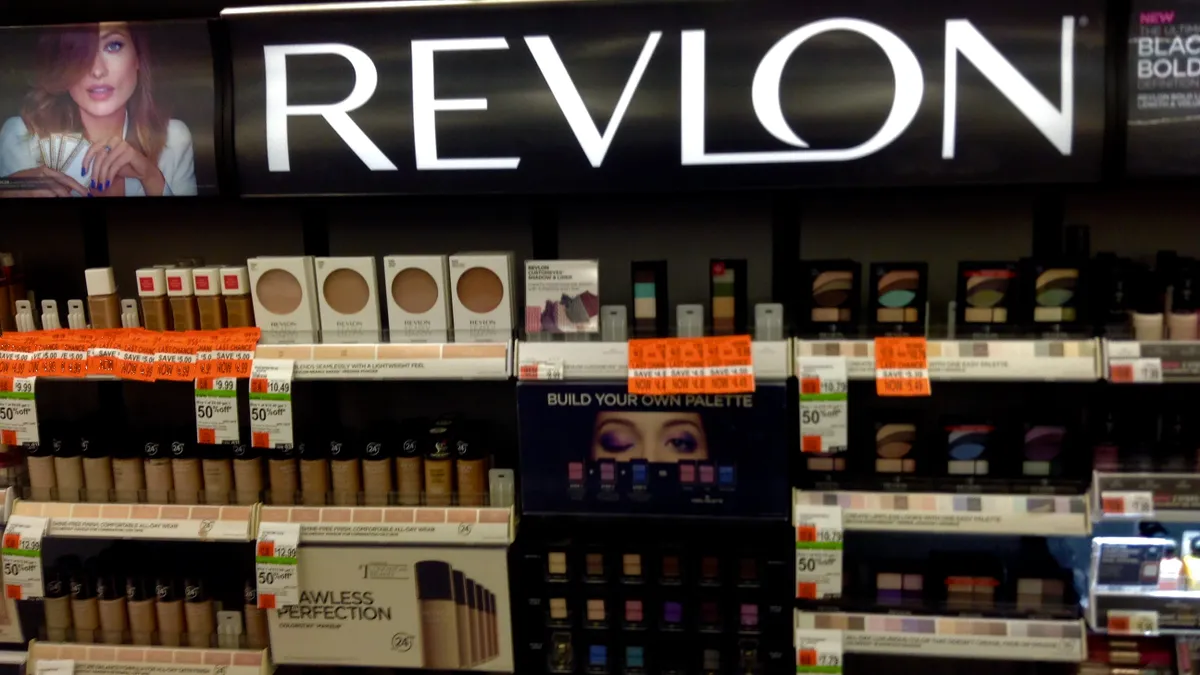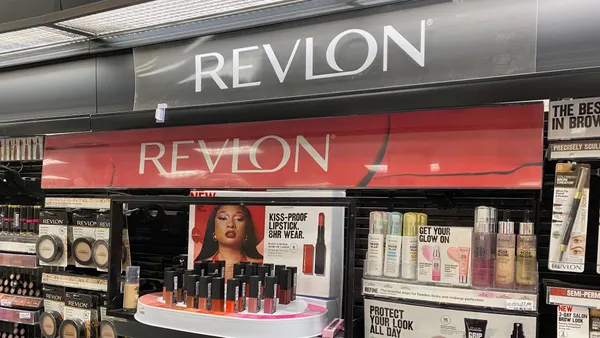Dive Brief:
- Beauty giant Revlon Inc. is preparing a Chapter 11 bankruptcy filing, which could come as early as next week, according to reports from Reorg, The Wall Street Journal and Bloomberg that cited anonymous sources.
- The potential filing grew out of talks with lenders on debt that begins to mature next year, according to The Wall Street Journal. The newspaper noted that, according to a source, the “situation is fluid and a chapter 11 filing isn’t certain.”
- The company did not immediately respond to request for comment.
Dive Insight:
Revlon has long struggled under its debt load in an ever-changing beauty industry. Today the company has some $3.3 billion in long-term debt. Last year it paid well over twice in interest expenses than what it pulled in in operating income.
In recent years, the company has shed employees in an effort to become more profitable, executed a debt deal to keep it out of bankruptcy court, and its majority owner, MacAndrews & Forbes, has explored a sale of the company to a third party after decades of ownership.
The company also earlier cycled through CEOs as it worked to stem its losses. Its current CEO, Debra Perelman, who has served since 2018, is the daughter of MacAndrews & Forbes Chairman and CEO Ron Perelman.
The company’s financial struggles were exacerbated by the pandemic. Its sales fell by more than half a billion dollars in 2020 and its net loss nearly quadrupled, before easing in 2021 (but still standing above pre-pandemic levels).
The Wall Street Journal cited the company’s debt, competition, inflation and supply chain pressures as factors in its pending possible bankruptcy. It also pointed to an imbroglio involving one of Revlon’s loans, which Citigroup accidentally paid back to lenders with its own money as the loan’s administrative agent.
Revlon still owes the money; meanwhile Citi has fought with lenders to give back the money it paid them. According to the Journal, based on an unnamed source, bankruptcy court “may be the best forum to untangle the messy interplay between Citi’s accidental payment and Revlon’s need to restructure its debt.”
In its first quarter, Revlon posted sales growth and positive operating profit amid a tough supply chain and cost inflation backdrop.
Debra Perelman said in a release at the time that the makeup company was “executing against our well-established strategic plan of focusing on our core, iconic brands in key markets as well as our digital acceleration to drive long-term, sustainable growth — while protecting profitability and managing our liquidity.”
















